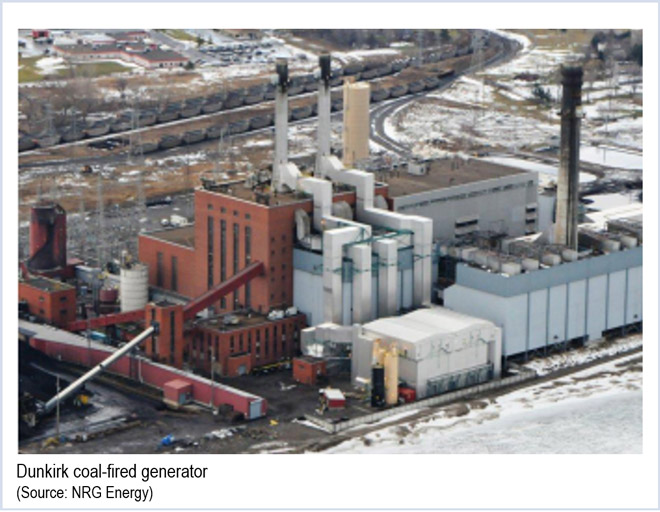NYISO must amend its Tariff to establish uniform rules for identifying and compensating reliability-must-run (RMR) generators, FERC ruled Thursday.
By William Opalka

“Without such provisions, there is no assurance that generation resources will be treated on a not unduly discriminatory basis and have the opportunity to collect compensatory rates without a protracted proceeding,” FERC ruled.
FERC ordered the ISO to make a compliance filing within 120 days specifying the rates, terms and conditions for RMR service (EL15-37).
Noting that the ISO has been unable for nearly four years to win stakeholder consensus regarding compensation for RMR units, FERC said “the commission thus has no expectation of NYISO and its stakeholders addressing the matter on their own. Yet, the need for RMR service remains.”
FERC said the lack of uniform rules created uncertainty that could compromise system reliability. It ordered NYISO to include in its filing a process for determining which generation resources seeking to deactivate are needed for reliability; compensation for RMR service, including accelerated cost recovery for generators that require upgrades, retrofitting or other investments; and how RMR costs should be allocated.
The commission pointed to MISO’s process for considering alternatives to RMRs, such as generator construction or transmission upgrades, and to PJM’s cost allocation method.
RMR agreements should be of limited duration and not prolong out-of-market solutions, FERC added. In addition, the Tariff provisions must include rules to minimize incentives for generators to “toggle” between RMR compensation and market-based rates, FERC said.
“The commission appreciates that uneconomic units could become economic for a number of reasons, including changing market conditions and the need for and timing of capital investments,” FERC said. “However, the commission is concerned that any proposed provisions not provide an incentive for a generation resource to propose to deactivate earlier than it otherwise would have in expectation of being needed for reliability and, therefore, be able to receive more revenues under an RMR service agreement than by remaining in the market.”
The order was spurred by two coal-fired generating stations in western New York, Dunkirk Power and Cayuga Operating Co., which had been targeted by their owners for mothballing.
The New York Public Service Commission had determined the two plants were needed to maintain reliability.
Dunkirk is a 635-MW, four-unit coal-fired plant outside Buffalo that owner NRG Energy sought to close in 2012. More recently, it won PSC approval to repower the plant as a 475-MW gas-fired station.
Cayuga is a 306-MW coal-fired plant in Lansing, near Ithaca, that is owned by Upstate New York Power Producers. It, too, sought to close its plant in 2012 due to economic factors and expensive upgrades needed to bring it into environmental compliance.
While the circumstances of the plants were similar, FERC noted that different filings were made before it or the PSC with various financial incentives to keep the plants operating. The companies requested cost-based RMR proceedings before FERC be held in abeyance while they negotiated reliability support services agreements (RSSAs) with the host utilities under the guidance of the PSC.
FERC last week rejected Dunkirk’s 2012 filing of an unexecuted cost-of-service RMR agreement. FERC said no service was ever provided under the agreement and the time period covered by it has expired (ER12-2237).
FERC granted Cayuga’s request to withdraw an unexecuted 2012 cost-of-service RMR agreement (ER13-405). Cayuga said the agreement was moot now that it has reached an agreement on an RSSA with New York State Electric & Gas.
Another RSSA proceeding in New York is underway to avoid the closing of the R.E. Ginna nuclear station outside Rochester. Plant owner Exelon and local utility Rochester Gas & Electric were ordered by the PSC to reach financial terms. Negotiations concluded and the agreement was filed with FERC and state regulators earlier this month. (See Ginna Nuclear Plant Wins Contract to Keep Operating).


